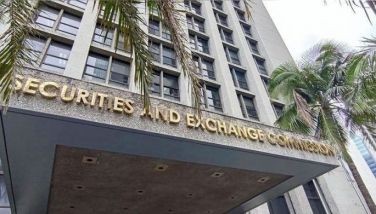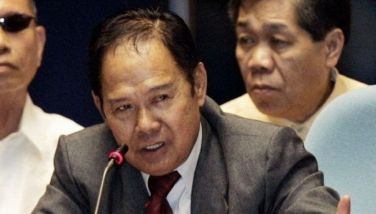Businesses urge government to allow more foreign capital into telco
MANILA, Philippines — Business groups are against a proposal to keep the telecommunications industry as a public utility, saying this will hinder foreign investments needed in the sector to address the gaps in access to information communication technologies and internet services.
In a letter to the Senate dated Aug.9, the Foundation for Economic Freedom, Federation of Filipino Chinese Chambers of Commerce and Industry Inc., Makati Business Club, Management Association of the Philippines, Philippine Chamber of Commerce and Industry, Philippine Exporters Confederation Inc. and University of the Philippines School of Economics Alumni Association said they have concerns over the recommendation of several senators to maintain telecommunications as a public utility during deliberations on Senate Bill 2094 or the bill amending the Public Service Act (PSA).
SB 2094 seeks to distinguish public utilities from public services, as well as limit the definition of public utilities to natural monopolies such as distribution and transmission of electricity, water and sewerage.
The Constitution sets a 40 percent limit on foreign ownership for public utilities.
When the proposed amendments to the PSA are approved, it would open the telecommunications and transportation sectors to greater foreign investments.
The bill amending the PSA is among those certified urgent by President Duterte.
The business groups said retaining telecommunications as a public utility would go against the proposed definition of a public utility under SB 2094 as the industry is not a natural monopoly given the three major telco players and several internet service providers in the country.
In addition, the groups said the country needs to attract more investments in the telco industry to address the digital divide, citing data from the National Economic and Development Authority that 64 percent of barangays do not have telecommunication power, 88 percent lack free WiFi zones, and 70 percent have not been deployed with fiber optic cables.
“If we do not address this, access to education is hampered, and MSMEs (micro, small and medium enterprises) and our workforce will have difficulty in participating in the digital economy,” the groups said.
Moreover, the country will not be competitive if the digital divide is not addressed as the state of internet access is a major consideration for foreign firms in making investment decisions.
On the concerns being raised by some on national security threats that may arise when the telecommunications sector is opened to foreign investors, the groups said SB 2094 has safeguards.
These include the review by the National Security Council of prospective investments in critical infrastructure, as well as giving the President the power to suspend or cancel any investment that pose a security threat.
The bill also bans prospective investments and caps existing ones made by state-owned enterprises in critical infrastructure, as well as requires upcoming investments to adhere to the ISO certification on information security.
With bulk or 80 percent of hardware used by existing telco companies coming from Huawei, the groups said it is necessary for the country to get other players in the market to provide alternate technologies and reduce dependence on Huawei.
“Allowing more foreign, non-Chinese investors in the telecom industry will help diversify the risks,” the groups said.
As SpaceX as well as Japan’s KDDI and Kobayashi groups have expressed interest in investing in the Philippine market, the groups said the passage of PSA amendments would allow these investors to come into the market.
By attracting investors from diverse countries, the groups said the Philippines would likewise minimize potential risks in relation to access to US internet in the future as the latter is implementing a program to safeguard its assets including citizens’ privacy and companies’ information.
“We need to liberalize the telecommunications sector to foster competition and provide better quality services at lower cost. SB 2094 will help achieve this and greatly benefit Filipino consumers and the business community as a whole,” the groups said.
- Latest
- Trending





























